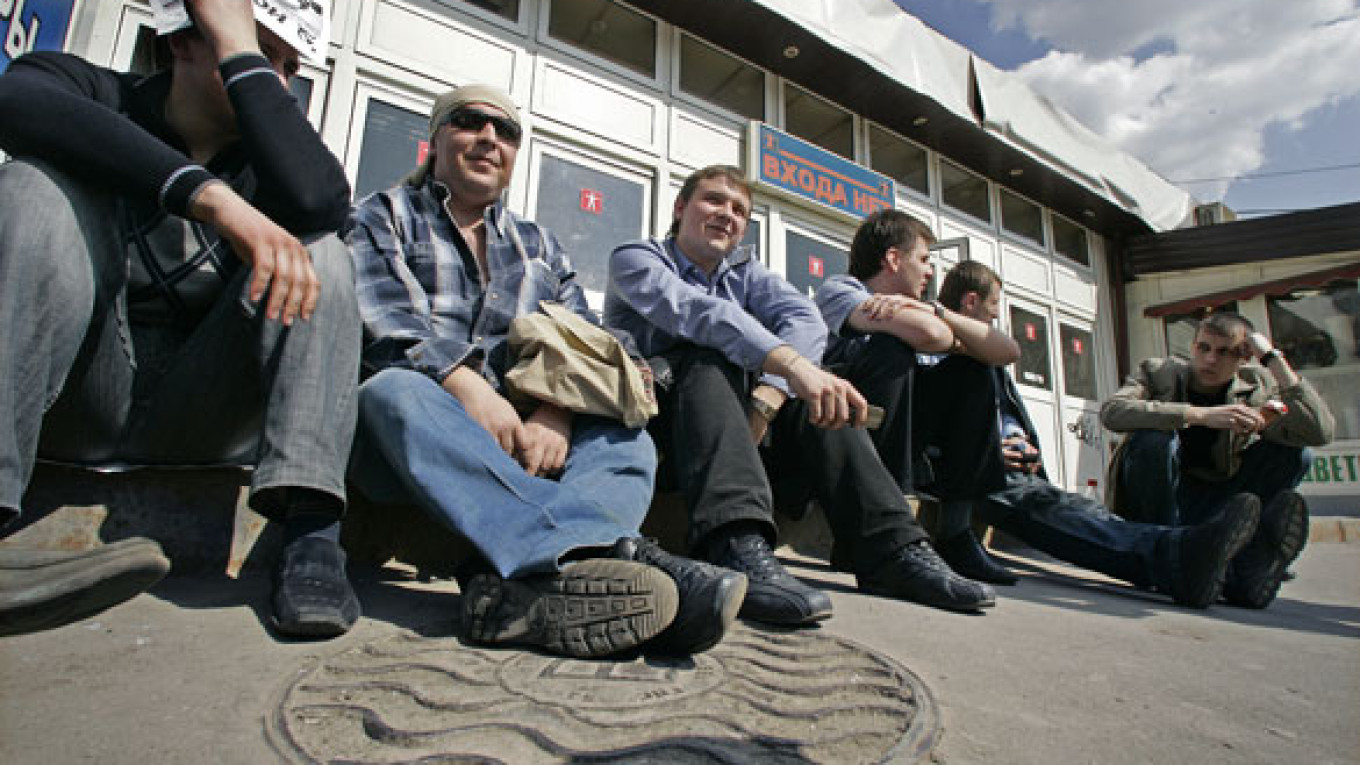For the past 15 years, Russia’s labor unions have made sporadic efforts to form a unified organization, but they have had little success. One of the main reasons for this was that the leaders of rival unions were too proud of their independence and too suspicious of one another to join forces at the national level.
But at the same time, this disunity helped unions avoid being coopted into Prime Minister Vladimir Putin’s “managed democracy,” which he has been fortifying since he laid the foundation in 2000. In contrast to political parties, labor unions stubbornly resisted coming under administrative control and centralization from above.
To be sure, there are unfortunate cases where union leaders have sold out to the authorities. When this happens, the leader loses his ability to lead the organization effectively. Independent labor union members cannot be appeased by slogans and empty promises.
The economic crisis made it more important than ever before for labor unions to unite. In a downturn, all labor issues become more acute. For example, it is more difficult to win concessions from local employers, and national issues such as the Labor Code, legislation governing the dismissal of employees and the right to strike become particularly important.
It is therefore no coincidence that in 2009 the two largest labor union organizations announced their intention to merge. After that, both organizations underwent a series of internal schisms, during which both sides complained about interference from the presidential administration. This only poured oil on the fire, causing the union leaders to strengthen their oppositional stances toward the government and employers.
The expected merger finally took place last summer. For the first time in more than 100 years, Russia has a national labor organization that professes the same principles as unions in Western Europe. While the intellectuals were busy debating whether Russia has a civil society, union leaders managed to create a large organization that functions independently of government control and unites thousands of members — something that the liberal political opposition can only dream of. In fact, the status of the organization has increased so much that union leaders Igor Kovalchuk and Boris Kravchenko are now rejecting membership requests from organizations they suspect of having ties to the authorities or employers.
Now, the most important question is whether the new union will be able to maintain its strength without having the power and resources that its European counterparts enjoy. The success of Russia’s labor movement will depend on financial resources as well as on the extent to which it can develop and inculcate an ideology that is suited to the realities of Russia. Will the union be able to offer its members anything more than independence from the authorities? Will new leaders emerge?
It is difficult for any labor union to advance its agenda during an economic crisis, especially if it must contend with both adversarial employers and a hostile government. On the bright side, however, Russia’s labor movement has achieved important successes in the past several years. This has shown that it is still possible to institutionalize key elements of a civil society.
Boris Kagarlitsky is director of the Institute of Globalization Studies.
A Message from The Moscow Times:
Dear readers,
We are facing unprecedented challenges. Russia's Prosecutor General's Office has designated The Moscow Times as an "undesirable" organization, criminalizing our work and putting our staff at risk of prosecution. This follows our earlier unjust labeling as a "foreign agent."
These actions are direct attempts to silence independent journalism in Russia. The authorities claim our work "discredits the decisions of the Russian leadership." We see things differently: we strive to provide accurate, unbiased reporting on Russia.
We, the journalists of The Moscow Times, refuse to be silenced. But to continue our work, we need your help.
Your support, no matter how small, makes a world of difference. If you can, please support us monthly starting from just $2. It's quick to set up, and every contribution makes a significant impact.
By supporting The Moscow Times, you're defending open, independent journalism in the face of repression. Thank you for standing with us.
Remind me later.


